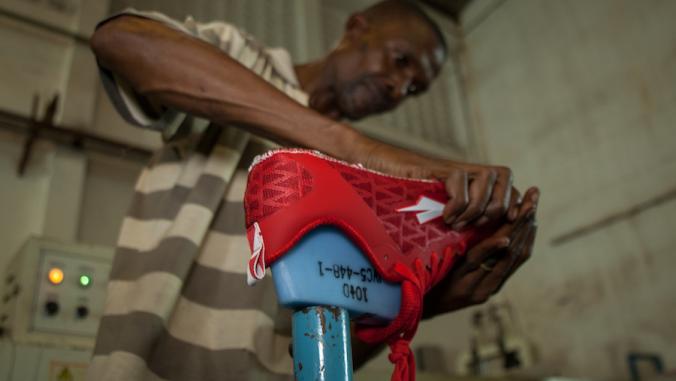Aclima's particulate vision maps air pollution
Revealing otherwise unseen toxicity is CEO Davida Herzl's mission.

Davida Herzl, CEO of Aclima.
This 12-part series highlights women-led ventures in the green economy.
Air pollution is one of the leading causes of disease, disaster and devastation. More than 5 million people die each year from contaminated air — and the trend is unfortunately increasing as cities from London to Lucknow are failing to curb pollution.
One barrier to eliminating air pollution is data — knowing what contaminants are present in the air and in what amounts. Aclima, founded by Davida Herzl in 2008, specializes in the measurement and mapping of hyperlocal air quality across cities with environmental sensor networks.
Herzl trained as a lawyer, but time she spent with her dad in Southern California gave her the inspiration to launch Aclima. Before the Alibaba online marketplace, there were people such as Herzl’s father, who facilitated transactions between factories in China and purchasers of their products in the United States. Herzl’s father, Ron, would take Herzl to the Port of Long Beach, which together with the Port of Los Angeles is the biggest in the Western Hemisphere.
"I was overwhelmed by the toxic water and air emissions at the port — all just to generate the massive amounts of television screens that were filling our homes," Herzl lamented.
Post-law school, she went on a personal journey to explore how emerging technologies such as the Internet of Things (IoT) could be applied to big challenges facing humanity. An entrepreneur by DNA, Herzl saw an opportunity to make the invisible visible to improve human and planetary health. She incubated the idea of Aclima at NextEarth Group, a business she co-founded that advised on sustainability strategies and investments.Herzl saw an opportunity to make the invisible visible to improve human and planetary health.
Aclima’s platform combines sensor technology, cloud computing and machine learning to make sense of the invisible. The results are high-resolution maps of emissions that are up to 100,000 times greater in spatial resolution than the status quo; the platform detects a number of air pollutants, including nitrogen dioxide, sulphur dioxide, carbon dioxide, methane and particulate matter, and highlights localized pollution hotspots to identify new opportunities for pollution control. In the future, Herzl sees a range of applications for Aclima’s data, such as supporting "personal exposure analytics," which can inform personal behavior — much as real-time traffic data informs individual driving patterns.
Aclima took a big leap forward in 2011 when it started working with Google, deploying a global network of 6,000 environmental sensors across Google’s building portfolio. In 2014, Aclima began mapping urban pollution and emissions with its platform on Google Street View as a way to fill a critical gap for this data around the world.
"Partnerships are core to the success of Aclima," Davida said. "The company has forged longstanding collaborations with partners like Google and the US EPA, in a unique model referred to as 'Cooperative Advantage,' which augments our capabilities and extends our reach."
Aclima’s software-as-a-service-based platform gives users, namely large enterprise and government clients, air quality and climate emissions data and analytical insights on the outdoor environment. Any user that needs to quantify local climate risk — from urban planners to insurance companies — are off-takers of Aclima’s platform.Aclima began mapping urban pollution and emissions with its platform on Google Street View as a way to fill a critical gap.
At this juncture, Aclima recently announced a $24 million Series A funding round that will enable the company to continue to develop its platform for air quality mapping in cities, expand its team and scale its next wave of enterprise fleet partnerships where data is collected in conjunction with fleets.
To enter into the next phase of growth successfully, Aclima will need to build out its workforce wisely. With 30-plus full-time employees on board, Aclima is a well-staffed young company with roles in software, data analytics, hardware, communications, R&D, product, business development, sales and operations. A range of qualifications is needed to perform the various duties at Aclima, from Ph.Ds in mechanical engineering to masters in economics. Aclima recruits team members through local meet-ups, its jobs page and word of mouth.
Unfortunately, 90 percent of the world’s 7.3 billion people breathe unhealthy air, causing devastating epidemics and 10 percent of all deaths. Aclima’s platform just may be the key to enabling cost-effective solutions to air pollution, accurately matching mitigation and abatement with local need.





